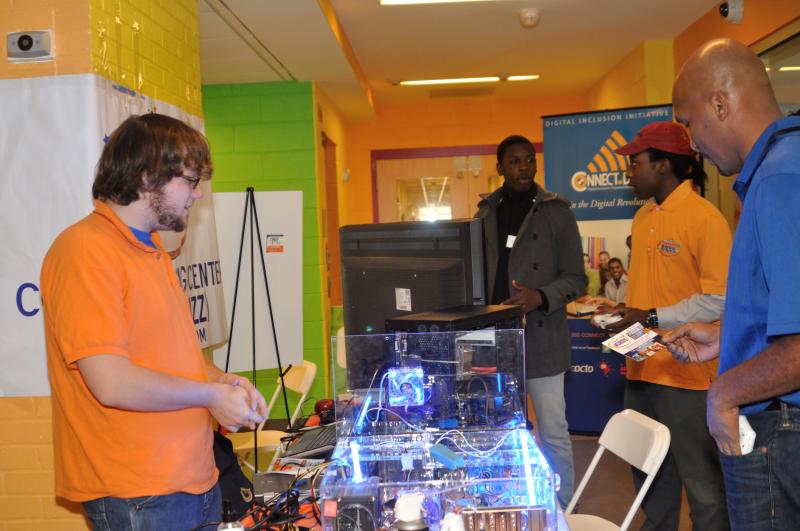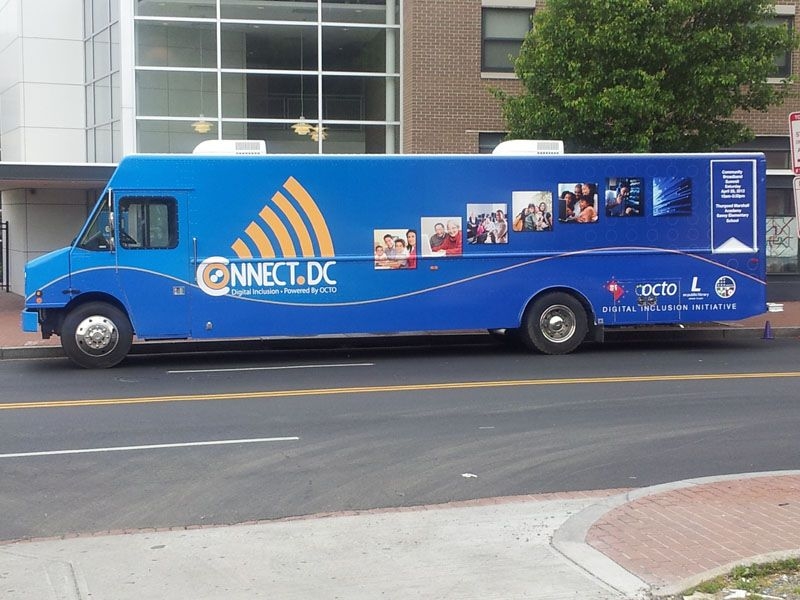Promoting Digital Inclusion in the Nation's Capital
I recently had the opportunity to participate in a Community Broadband Summit held by the District of Columbia to explore the many ways that broadband drives economic growth, spurs community development and opens up new possibilities in jobs, education, healthcare and other areas.
A high-speed Internet connection and digital literacy skills can provide access to up-to-date job listings and new career paths, to specialized online classes and advanced educational content, to valuable healthcare resources and cutting-edge medical expertise. But even in the nation’s capital, there are still too many residents cut off from these opportunities because they are not online.
The D.C. Office of the Chief Technology Officer, or OCTO, which hosted the recent summit, is working to close this divide. And it is the Broadband Technology Opportunities Program, or BTOP, a Recovery Act program administered by NTIA, that makes OCTO’s digital inclusion work possible.
The District of Columbia is one of the few BTOP grantees across the country administering grant projects in all three categories of the program: network infrastructure, public computing centers and sustainable broadband adoption projects.
• OCTO is building a high-speed, fiber-optic network that will deliver Internet connections of up to 10 gigabits per second to as many as 290 D.C. anchor institutions. These anchors include schools, libraries, healthcare facilities, public safety entities and community colleges – many of which are located in low-income neighborhoods that suffer from high unemployment rates. The new Community Access Network – or DC-CAN – will also expand the District’s existing municipal fiber network, DC-Net, by another 170 miles. When the project is done, OCTO will manage more than 500 miles of fiber.
• The DC Public Library is installing more than 1,000 new computers and upgrading existing machines at more than 30 sites – including 27 libraries, two recreation centers, one community college and several public schools. Many of these computer centers serve people who don’t have access to the Internet at home, and sometimes have to wait several hours to use a public computer to conduct a job search or complete a homework assignment. The Community Computing Resources project – or DC-CCR – will help expand public access to computers and the Internet and reduce wait times. The project has already installed roughly 500 PCs at 30 sites and more are coming.
• And OCTO is offering digital literacy and workforce skills training programs – including technical certification programs – at ten public libraries and four Community College of DC locations, with other locations being added. Residents who complete a training program and meet financial eligibility requirements receive a free refurbished computer and, in some cases, subsidized broadband subscriptions. The DC Broadband Education, Training and Adoption Program – or DC-BETA – will also provide specialized classes for senior citizens and foster children, as well as classes in Spanish and American Sign Language. The project reports that it has already trained more than 5,000 people and produced more than 1,000 new household broadband subscriptions.
In addition, OCTO is using funding from the State Broadband Initiative, another Recovery Act program administered by NTIA, to promote public awareness and civic engagement with broadband. The recent Community Broadband Summit was part of that effort. Among other things, the summit included a technology expo with nearly 30 government agencies, local businesses and community partners showcasing online content and Internet applications. OCTO staffers demonstrated broadband speed test and mapping applications. Bank on DC, a public-private partnership that provides financial services to D.C. residents who traditionally have not had bank accounts, offered online financial literacy tutorials.

District-based nonprofit IT Computer Wiz Kids at one of the many exhibitor tables demonstrating how to dissect and reassemble desktop machines at the District's recent Community Broadband Summit.
And a newly refurbished Mobile Technology Lab - a 40-foot trailer equipped with laptops and projector, and emblazoned with the city’s digital inclusion banner, “Connect.DC” - was on display. It was an eye-catching sight. The mobile technology lab helps OCTO circulate technology tools and programs around the city. The District is using the lab to offer Internet access to the general public and provide training to instructors who then teach digital literacy skills to DC residents.
It is gratifying to see all of these projects take shape and make such a difference right here in the nation’s capital. We understand why closing the digital divide is such a priority for the District of Columbia. And at NTIA, we are proud to play a critical role in funding the important investments to help make that happen.
For more information, please visit the BTOP project page and Connect.DC

The District of Columbia is using a newly refurbished Mobile Technology Lab to offer Internet access to the general public and provide training to instructors who teach digital literacy skills to DC residents.
